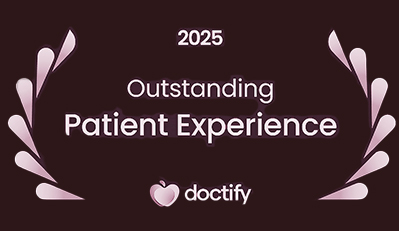
Can your eyesight deteriorate after lens replacement?
If you’re thinking about having lens replacement surgery, you might wonder:
"Will my eyesight still deteriorate after the procedure?"
It’s an excellent question—and one that many people ask before deciding to go ahead.
The good news is that lens replacement offers a permanent solution to many common vision problems. But it’s also important to understand how the eyes can still change with age, and what to expect over the long term.
Let’s take a closer look.
What is lens replacement surgery?
Lens replacement, also called refractive lens exchange (RLE), involves removing your eye’s natural lens and replacing it with a clear, artificial intraocular lens (IOL).
The new lens corrects:
- Distance vision
- Reading vision
- Astigmatism (with toric lenses)
It also prevents cataracts—because once your natural lens is replaced, it can’t become cloudy.
Is the lens permanent?
Yes—the artificial lens stays in your eye for life. It doesn’t wear out or need replacing (in most cases). You won’t ever need cataract surgery in that eye again.
So from a surgical point of view, it’s a one-time solution.
Can your vision still change later?
Yes—although the lens stays the same, other parts of your eye can still change with age or health conditions.
Here’s what to know:
1. Posterior capsule opacification (PCO)
In about 10–20% of patients, the capsule that holds the lens can become cloudy over time. This is called posterior capsule opacification (PCO).
It’s not your eyesight "deteriorating"—it’s a natural membrane thickening.
The solution is a quick, painless laser procedure (YAG capsulotomy) that restores clear vision immediately.
2. Retinal changes
Lens replacement doesn’t stop natural changes in the retina that can occur with age, such as:
- Macular degeneration
- Retinal vein occlusion
- Diabetic retinopathy
These conditions can affect vision later in life, even with a perfect lens. Regular eye check-ups are important for monitoring eye health.
3. Glaucoma
Lens replacement doesn’t cause glaucoma, but glaucoma can develop in some people over time. If not managed, it can gradually reduce vision.
Again, regular check-ups help catch it early.
4. Dry eyes
Dry eye doesn’t affect the lens itself, but can cause fluctuating or blurry vision if not well managed. This is very treatable with drops, lid care, or other therapies.
Will I still need glasses years later?
Most people enjoy excellent vision after lens replacement—often with reduced or no need for glasses.
But the outcome depends on:
- The type of lens you choose (monofocal vs. multifocal/trifocal/EDOF)
- Your overall eye health
- Whether any new eye conditions develop
Some people choose to wear light glasses later for fine print or night driving—but many don’t need them at all.
How does this compare to laser eye surgery?
Laser eye surgery reshapes the cornea, but doesn’t stop the natural lens from ageing. Many people who have laser eye surgery still need reading glasses after 45.
Lens replacement, by comparison, addresses the root cause of age-related vision changes—offering a much longer-term result for people over 45.
How to keep your vision clear after surgery
- Attend regular eye check-ups
This helps detect any age-related changes early. - Manage general health
Good blood pressure, blood sugar, and cholesterol protect your eyes. - Use sunglasses
Protect your eyes from UV light to slow retinal ageing. - Follow dry eye advice
If you develop dry eye, simple treatments can prevent blurred or fluctuating vision.
So—can eyesight deteriorate after lens replacement?
The lens itself won’t deteriorate—but other parts of your eye can still age, just like the rest of the body.
That’s why we always say lens replacement is permanent, but not immune to the natural effects of ageing.
The good news? Most people enjoy many years of sharper, brighter vision—and never need cataract surgery again.
Take our free self-test to see if lens replacement is right for you.
Find out if you are suitable for vision correction
Not everyone is eligible for vision correction surgery.
Find out if you could benefit from this life changing surgery by taking the quick self-suitability quiz below:




